International Women’s Day is a time to celebrate the women in our lives –all that they do, their contributions, their voices and the communities that support them. Some say this day should also be more inclusive of women raising children, the voices of the mothers and moms-to-be who are making a difference in young lives around the world.
According to this year’s International Women’s day theme, “Now, more than ever, there’s a strong call-to-action to press forward and progress gender parity. There’s a strong call to #PressforProgress motivating and uniting friends, colleagues and whole communities to think, act and be gender inclusive.”
Historically, as women in South Asian families, we have seen gender bias evolve in our time. As South Asian women today, we are just as empowered in some cases as previous generations but today I believe we have more of a ‘tribe’ that elevates and supports us in all that we do as moms and women.
At at time when #MeToo and #TimesUp movements are mobilizing women around the world, there is more momentum than ever to make your voice heard and help those who have been silent, to find their voices and make a change when it comes to gender parity, domestic abuse, violence against women and sexual harassment–all things we have seen in our communities too. We are arming the next generation with tools to do just that. As we go forward in our journeys through motherhood it’s important to remember the strides we as mothers have made and also the gaps that remain.
Here are 10 South Asian moms from various industries who are talking about the advances we’ve made over time and the challenges that still remain:
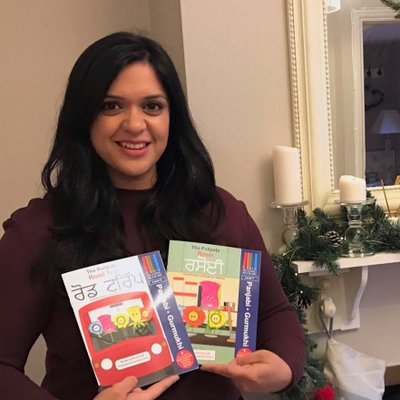 Kiran Lyall, is a children’s book author at Panjabi Books. based in the UK.
Kiran Lyall, is a children’s book author at Panjabi Books. based in the UK.
“We have come a long way since my grandmother’s time when it was common to refer to a woman as ‘pehr di jhutti’ (the shoe of the foot). Then, women were treated as second-class citizens and a burden on the family. Men were always fed first and well looked after before the needs of the women in the family were met. Over time, along came women like my mother who challenged the norm. When widowed at a young age, my mother refused to wallow in self-pity and carried on with her career. She left no stone unturned in giving her three-children the best childhood she could while progressing in her career to receive an MBE – a national award. This brings me to my generation.
Granted it is never easy to have a career and have children, but with a caring support system around both are possible. We have many options such as part-time working and flexible working hours to enable a healthy work/home life balance. However, those that achieve this are the lucky ones, there are still far too many women around the world who lack the opportunity due to class, education, and poverty. Despite these immense drawbacks, I firmly believe that where there is a will, women will always find a way.” Read more about Kiran’s books here.
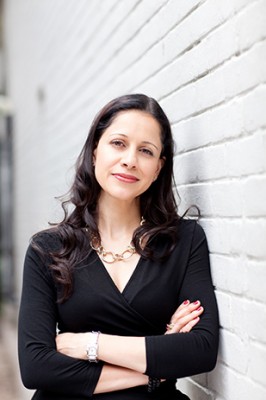 Reva Seth is the CEO of Business Cannabis & Founder of The Optimal Living Lab. She is a best selling author of the MomShift, and is working on the third book, The Whole Person Advantage. Reva & her husband Rana Sarkar are currently raising their three boys in San Francisco.
Reva Seth is the CEO of Business Cannabis & Founder of The Optimal Living Lab. She is a best selling author of the MomShift, and is working on the third book, The Whole Person Advantage. Reva & her husband Rana Sarkar are currently raising their three boys in San Francisco.
“When it comes to creating a safer, healthier and more equitable world for women – the data shows us that there is still so very much to do – both globally and here in Canada. The scope and urgency of these issues from access to education, violence against women, prenatal health or the long-term impact of the pay gap can seem daunting. But I’m optimistic, progress is being made, even if it’s not as fast as we would like.”
In terms of progress, one especially important improvement is that we are in the midst of a large-scale shift in the public understanding and conversations that we are having – from the #MeToo & #TimesUp movement to a deeper understanding of intersectionality of gender as it relates to creating a landscape for more women to access the education and opportunities.
A great example is the recent federal budget, #Budget2018 was the first to bring the gender analysis to every aspect of spending in an effort to remove some of the systematic barriers impacting women; similarly the Ontario government’s recent announcement that they are investing $242 million to better support sexual assault services are all examples of how new conversations lead to substantive and structural change. Also promising is the effort to help shift the aspects of the culture of toxic masculinity that hurts both men and women.”
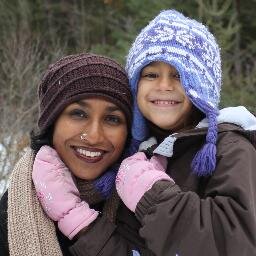 Shaaren Pine is an author, writer and executive director of @restrecovery | and adoptee rights and lives in Washington, D.C.
Shaaren Pine is an author, writer and executive director of @restrecovery | and adoptee rights and lives in Washington, D.C.
“I think one of the greatest challenges facing moms of colour is access. Access to equal wages and opportunity, access to agency over our own bodies and health, access to safety, and access to justice. And as mothers, we also carry this burden for our children.
[bctt tweet=”Some of us may feel we that we have reached a certain level of attainment in these areas (in part or in whole), or that our children may not face these same difficulties, so my challenge to us would be helping to ensure that all moms of colour attain them, too.” username=”@shaaren”]
In some aspects, this could be as easy as donating our time or money. But, the more difficult task may be examining our own complicity in systems that oppress our sisters.” Read more about Shaaren’s journey http://masalamommas.com/2014/06/17/the-lost-children-an-adoptees-story/here.
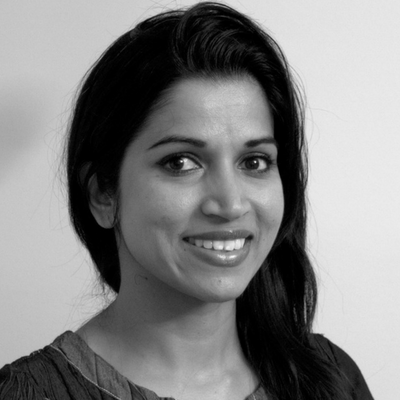 Manjula Selvarajah, is a journalist, producer and tech columnist at CBC Radio. In her former role, she was a VP of Marketing at software start-up Eloqua. She is the co-founder of Tamil Women Rising and holds an Engineering degree from Queen’s University. (Toronto Based)
Manjula Selvarajah, is a journalist, producer and tech columnist at CBC Radio. In her former role, she was a VP of Marketing at software start-up Eloqua. She is the co-founder of Tamil Women Rising and holds an Engineering degree from Queen’s University. (Toronto Based)
“Most South Asian mothers I know are balancing complex lives. We have careers and grand aspirations. We care for children, while being caregivers for aging parents. We find time to give back to our communities. We are negotiating for more power within our workplaces and homes. Some days we feel like we can do it all, and then there are the days when it’s hard to explain how entirely and completely exhausted we are. There is still a lot of change we need to see in the systems around us. But sometimes I ask myself if we are doing enough to combat the issues women face within our community – from shadeism to gender-based violence. I hope we are inspired to act on these problems within our community, as we see women mobilizing around larger movements like #MeToo and #TimesUp.”
 Sitara Hewitt, is a Canadian actress and model and also a holistic health contributor at masalamommas.com. She has credits in productions like Deepa Mehta‘s Bollywood/Hollywood (2002), as “Rayyan” in Canada’s hit series Little Mosque on the Prairie (2007), as vivacious co-host of the Comedy Network’s You Bet Your Ass (2006). Along with her acting roles, Sitara has also hosted shows like “Playtime” on Sportsnet and “Double Down” on Global. Currently, she can also be seen on CBS’ Young and the Restless, as Helen Wallace, a savvy business woman.
Sitara Hewitt, is a Canadian actress and model and also a holistic health contributor at masalamommas.com. She has credits in productions like Deepa Mehta‘s Bollywood/Hollywood (2002), as “Rayyan” in Canada’s hit series Little Mosque on the Prairie (2007), as vivacious co-host of the Comedy Network’s You Bet Your Ass (2006). Along with her acting roles, Sitara has also hosted shows like “Playtime” on Sportsnet and “Double Down” on Global. Currently, she can also be seen on CBS’ Young and the Restless, as Helen Wallace, a savvy business woman.
I think moms in our community have started to recognize that we need to care for ourselves if we are going to be there for everyone else. We are more focused on how we can eat, exercise and time manage better, while also finding ways to feed our kids those healthier options and get outside and move more with them, rather than just running errands etc when we aren’t working. I also think our partners are becoming more supportive and helpful as we gently recognize that we need that for the good of all.
The gaps remain sometimes in the expectation that a mother can handle everything on her own, and I think what’s key in addressing that is how we ourselves view it. If I’m always complaining about how tired or spread thin I am, I’m less likely to find solutions and get support from others. Conversely, if I set healthy boundaries and am positive and firm about it – for example say no to extra duties at work or hosting a massive holiday dinner at my house – and I frame it in a way that feels beneficial to my family and all involved, I feel calm & peaceful. It’s then that those around me will start to respect and even encourage my boundaries. If I take 30 minutes a day to exercise for example, and I explain that mommy needs that to be energized and healthy for the rest of her day, then my family really starts to accept and support that.”
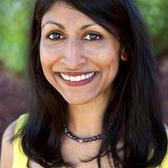 Anita Sarah Jackson, is the director of digital communications at a national nonprofit, MomsRising. She’s led communications campaigns that center marginalized voices, support policy-changing grassroots action, and drive organizational growth.
Anita Sarah Jackson, is the director of digital communications at a national nonprofit, MomsRising. She’s led communications campaigns that center marginalized voices, support policy-changing grassroots action, and drive organizational growth.
“One of the biggest and best steps forward moms have made is our increased visibility in society. I think the explosion of mom blogs a decade ago is a phenomenon that has grown and evolved and perhaps contributed to public figures and everyday people sharing their perspectives as moms.
When we share our stories publicly, we’re allowed to be more than child caretakers or family lynchpins. We are those important things- AND we’re people who work in the community, who volunteer, who chair boards, who do domestic work, who make business decisions, who are scientists, writers, bus drivers, politicians, speakers, cleaners, musicians, readers, friends, comedians. In other words, we’re more often seeing the beauty and power of the fullness of our humanity reflected in mainstream media.
The challenges remain– we face discrimination for being women and moms in so many ways. We face domestic violence. We face a society whose values often do not align with our own, a capitalist culture that operates from greed and not love. We face all that and more. But when we gather together, and face those challenges together, and organize our voices, we are powerful.
Not only can we make change, we ARE making change. Women are running for office more than ever before. We’re writing petitions and organizing our voices to get better laws in place for family economic security, for our communities’ health, for our schools, for families torn apart by our broken criminal justice system and immigration system.
Women are stepping forward to say “Enough! We can do better!” in so many ways. We’re telling our stories and we’re saying we hear each other, we support each other. Our work is not perfect– the moral arc of history is long, as Rev. Dr. Martin Luther King Jr said. But I believe it does bend toward justice.”
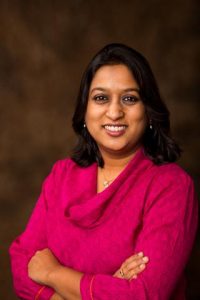 Gauri Malik is the co-founder of KitaabWorld, an online publisher which includes a vast selection of diverse books. Prior to founding KitaabWorld, Gauri spent over 12 years as a start-up and corporate lawyer, and sneaked out to the Redwood City Housing Clinic for pro bono work whenever she could! She is an avid reader, writer and book reviewer. She serves on the Board of the Women’s National Book Association- SF Chapter, and lives in Menlo Park with her husband and their two sons.
Gauri Malik is the co-founder of KitaabWorld, an online publisher which includes a vast selection of diverse books. Prior to founding KitaabWorld, Gauri spent over 12 years as a start-up and corporate lawyer, and sneaked out to the Redwood City Housing Clinic for pro bono work whenever she could! She is an avid reader, writer and book reviewer. She serves on the Board of the Women’s National Book Association- SF Chapter, and lives in Menlo Park with her husband and their two sons.
“For the most part, things have evolved a lot for our generation, and now there is a wide range of options available to moms in our community – one can chose to stay at home, work part-time, work remotely, or work full-time. Of course, it depends on the career choices and availability of opportunities. Employers in the US are increasingly supportive of part-time and remote opportunities and there’s a number of freelance opportunities. Except where there is a lot of pressure or restrictions from extended family or husbands, most women now can decide for themselves as to the extent they want to lean in and also when they may want to lean out.
The main gaps in my opinion are (i) the mental load and (ii) ability to return back to work after taking a break. For various reasons, women (especially in our culture) often still do carry the entire mental load of the house and children, whether it’s buying groceries, attending school events or managing social calendar – this eventually takes a toll and they should encourage men to participate equally in that.
Also, it is still very hard for women to return back to work after taking a long break – people are increasingly becoming aware of that, and there are programs being set up to help, but there is a lot of work that needs to go into it. It would be great to see more companies have programs which support people who are returning to work after taking a break to be the primary caregiver for their family or parents.”
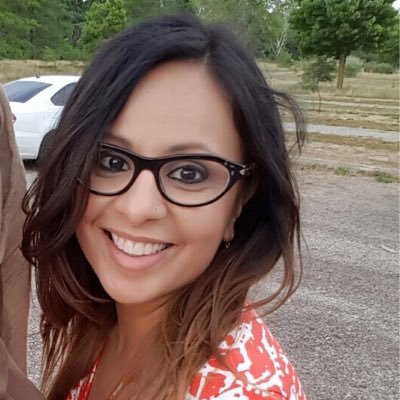 Ayesha Syed, is a secondary school educator in the Greater Toronto Area, a co-founder of Women Offering Wisdom and a social justice community advocate for youth and women. She has been working in this field for fifteen years and is committed to reforming systemic barriers to learning, equity and inclusive education.
Ayesha Syed, is a secondary school educator in the Greater Toronto Area, a co-founder of Women Offering Wisdom and a social justice community advocate for youth and women. She has been working in this field for fifteen years and is committed to reforming systemic barriers to learning, equity and inclusive education.
“I am not sure that I can speak for all moms in our beautifully diverse South Asian community. What I can comment upon are the intergenerational changes that I observe in my own extended families. What I see in my generation is the opportunity of choice.
Even as I write this statement, it is Rupi Kaur’s poem that comes to mind:
i stand
on the sacrifices
of a million women before me
thinking
what can i do
to make this mountain taller
so the women after me
can see farther
– legacy, the sun and her flowers
The sacrifices made by my immigrant mother – her process of acculturation, her double shift, her selflessness – leave me standing upon her shoulders with choices and freedoms that were not afforded to her. In this generation, I experience an egalitarian relationship with a partner who supports me in balancing the worlds of work and home with shared parenthood.
To my delight, in our generation, I see more strides for our moms because of genuine partnerships in the raising and education of our children, a decrease of unjust gender divisions of work and household responsibilities, and an increased investment in strengthening one’s marriage/partnership.
For me, a major gap that remains is one that is often constructed between women in our community. We could be better at supporting and celebrating one another’s choices in work and family. Upholding one another’s decisions in how we partner, raise children, and define our work is, for me, truly critical in our collective well-being.”
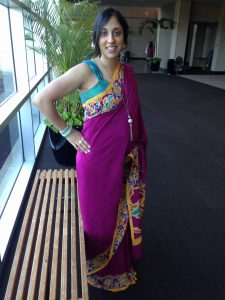 Parul Das, is an entrepreneur and founder of Janam Maternity Saris* & Beyond.
Parul Das, is an entrepreneur and founder of Janam Maternity Saris* & Beyond.
“Women have made such strides in balancing hectic schedules. That goes for women who are single, married, are mothers, are not mothers…all women. I have friends in all of those situations, and I can honestly say how impressed I am with their ability to juggle so many different commitments.
It’s sort of a catch-22 because that’s also where I see challenges that remain. A lot of it may have to do with social media and the heightened standard that has been set by ourselves and our peers when we see what others are doing and allowing that to make us feel like we are not doing enough. If there was one thing I could communicate to my peers, it would be that “you are enough.” Just you. The way you are.
“We have a long way to go when it comes to saying “no” to the things that are going to take away from your ability to care for yourself and your loved ones. It took me a long time to get there, and I still fall into the “yes” trap.”
However, having dedicated time for your own self-care and self-improvement is so important.
I don’t mean a spa day during the occasional girl’s trip. I mean dedicated time on a regular basis. I have challenged myself to do more yoga and consistently this year. It takes a lot of moving around of my schedule and not working so late into the night, so I can be in bed early. It took me nearly six years to get to this place, but I feel so much better and have more energy to get those “yes” items done.”. Read more about Parul here: http://masalamommas.com/2017/07/12/maternity-sari-is-here-janam-maternity/

Sandy Avvari, is a vegetarian food & travel blogger at milkandeggs.ca and Interactive Marketing Specialist at Honda Canada
“I have only been a mom for almost 4 years but I am thankful to find women loving and supporting each other through the ups and downs of being a mother and wife in online groups on Facebook. To know that there’s someone available to listen to you, often in the middle of the night when you’re feeding your baby and need a friend is a beautiful thing.
Because we live in a digital age, this is convenient for most people but I would like to see us move these online friendships to the real world where possible and bring more true human connection back. The only time in life I had to get together with moms was when I was on mat leave. I hope to change that and get together in person again and build my hive back.”
What do you think are the biggest challenges for mothers today? Share your thoughts below!


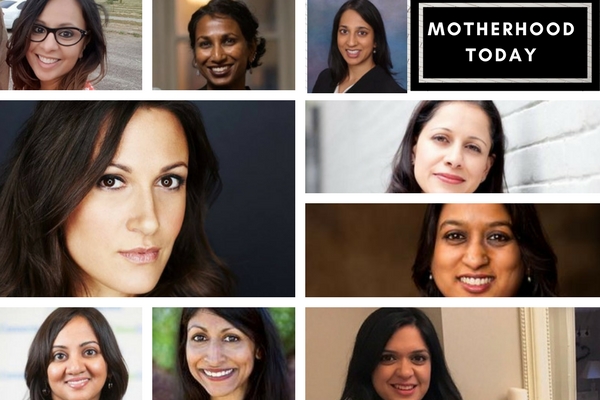
There are no comments
Add yours